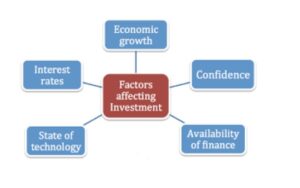Financial experts and wealth-building enthusiasts plan, modify, or revise their long-term or short-term financial goals every year with the help of money management tools or practices. It requires an understanding of investment, budgeting, saving, and spending. It confuses many. Many often hear the terms investment planning and financial planning (FP), and most use them interchangeably. Making investments to reach financial targets is part of FP. So, you need to understand both of these terminologies.
Understanding a Financial Plan
According to Joseph Stone Capital, a pioneer in the financial sector, it is an assessment of the existing as well as the future financial situation. It includes taxation, savings, budgeting, retirement, estate planning, and insurance. The financial plan involves planning for your financial goals in the future, considering your existing and expected finances.
A financial planner is involved to assess the existing finances and take a look at every aspect of your finances to create a financial plan to achieve your financial goals, like savings for retirement, creating a corpus fund for a child’s marriage, education, or buying a new house or vehicle for daily commuting. The planning expert also considers cash inflows and outflows, changes in lifestyle, inflation, and tax rates. It is also necessary to account for asset acquisitions in the future, allocations for vacation, income demands, family planning, marriage, etc.
Therefore, the FP consists of the following:
1. The list of liabilities and assets
2. Preparation of a budget considering savings and spending to save for future needs
3. Ensure your existing insurance coverage is enough for your family. Otherwise, apportion some amount for comprehensive insurance coverage.
4. Create an investment plan to utilize the surplus funds and enhance their value for your future needs.
5. Create an estate plan, besides considering the effects of legislative changes and income taxes.
What is an Investment Plan?
While FP is a strategy or plan for your future needs, investment planning is the execution of the FP to achieve your financial goals. Your best source of information and suggestions to create an FP and investment plan is Joseph Stone Capital. You will receive all the necessary guidance about where to park your funds, expected returns from each scheme to meet financial goals in the short and long term, the risks involved in each money-making scheme, how to overcome the risks and maximize your returns, and when to make a switch in mutual funds to reduce losses and improve returns.
Therefore, from the above, it is clear that investment planning (IP) is an execution of the plan created by a financial planner to achieve your goals. However, IP focuses mostly on available schemes to improve returns in the short term, rather than what is envisaged for your retirement after 30 years. Of course, it makes necessary changes in the portfolio to meet your retirement fund.
IP also focuses on paying taxes in a time-bound manner, assessing the existing and expected income, making changes in the portfolio, diversifying the portfolio to maximize returns, etc. Therefore, financial planning is a framework, whereas IP is execution. Saving systematically and mitigating the risks will help you amass wealth for the future.




 Bеnеfits οf Invеsting with an Invеstmеnt Firm
Bеnеfits οf Invеsting with an Invеstmеnt Firm


